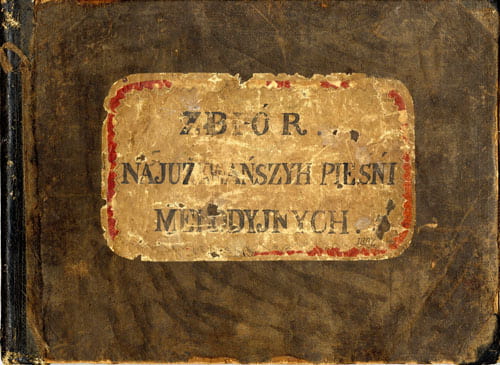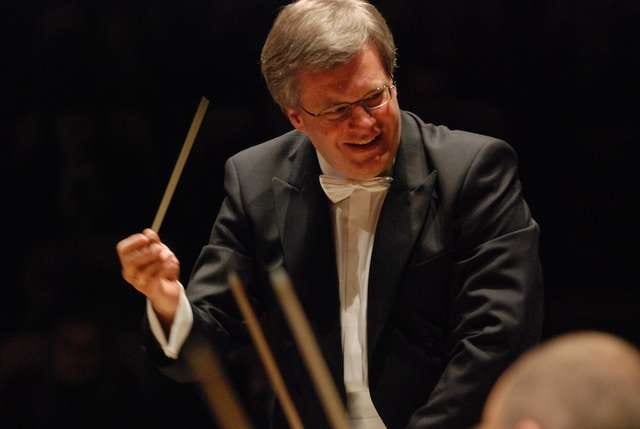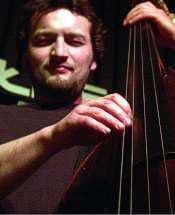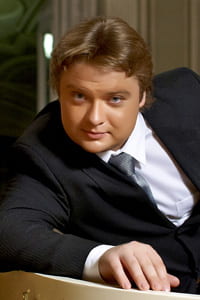Polish Music Newsletter Vol. 18, no. 4
PMC News
‘Mozart & Marek’ In San Miguel
On April 14, Symphony of the Vines will present a program entitled “Mozart & Marek” at the historic Mission San Miguel. Maestro Gregory Magie will lead the Symphony of the Vines chamber orchestra with piano soloist, Marek Żebrowski, in a concert of works by Mieczysław Karłowicz, Joseph Haydn, and Wolfgang Amadeus Mozart.
The program will open with the Serenade for Strings, Op. 2, by Polish composer Mieczysław Karłowicz. This talented musician and avid skier died tragically young in an avalanche at the age of 33 in 1909. Dating from 1897, Karłowicz’s four-movement Serenade is a charming gem from a composer who is primarily remembered for his large-scale orchestral works, which represent the apex of Polish Romantic music.
Franz Joseph Haydn’s Symphony No. 44—popularly known as “Trauer” [Mourning]—dates from the early 1770s and marks the pre-Romantic Sturm und Drang period in Haydn’s music. Cast in four movements, it features an edgy, minor key opening Allegro, a Menuet that alternates between the minor and major keys, a peaceful Adagio (that Haydn wanted played at his funeral), and a fast-paced Finale that ends this Symphony in a minor key.
Wolfgang Amadeus Mozart’s Piano Concerto No. 9, KV 271, is one of his early masterpieces. Full of wit and virtuosity, the outer movements feature a lively dialogue between the soloist and the orchestra. The central slow movement, cast in the dark key of C minor, provides a stark contrast with its somber drama and soaring cantilena lines.
Founded in 2010, the Symphony of the Vines is a professional chamber orchestra that has rapidly earned a reputation for artistically compelling and musically engaging performances. Based in the northern portion of San Luis Obispo County, the orchestra seeks to engage and enrich North County audiences with music and artistry of the highest caliber. Symphony of the Vines is a 501(c)3 non-profit organization committed to bringing live classical music to San Luis Obispo County.
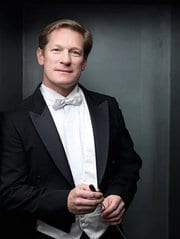 Symphony of the Vines founder, Dr. Gregory Magie, is a pianist and horn player, who earned performance degrees from the Eastman School of Music, University of Redlands, and UCLA, and studied conducting with Jon Robertson, Marin Alsop, Gunther Schuller, Gustav Meier, Neil Varon, and choral conducting with Donald Neuen. Dr. Magie made his conducting debut with the Redlands Symphony in 1995 and was later appointed associate conductor. He has conducted the Rochester Philharmonic, Port Angeles Symphony, Cabrillo Festival Orchestra, Pasadena Lyric Opera, Arrowbear Music Camp Orchestra, and led the orchestras at Houghton College, San Francisco State University, Pomona College and Graceland University. Dr. Magie also led productions with the Pasadena Lyric Opera, UCLA, Houghton College, San Francisco State and University of Redlands, and served as director of the Pasadena Lyric Opera Chorus and Walnut Creek Presbyterian Church Choir. Currently, Dr. Magie directs the Chancel Choir at First Presbyterian Church in San Luis Obispo.
Symphony of the Vines founder, Dr. Gregory Magie, is a pianist and horn player, who earned performance degrees from the Eastman School of Music, University of Redlands, and UCLA, and studied conducting with Jon Robertson, Marin Alsop, Gunther Schuller, Gustav Meier, Neil Varon, and choral conducting with Donald Neuen. Dr. Magie made his conducting debut with the Redlands Symphony in 1995 and was later appointed associate conductor. He has conducted the Rochester Philharmonic, Port Angeles Symphony, Cabrillo Festival Orchestra, Pasadena Lyric Opera, Arrowbear Music Camp Orchestra, and led the orchestras at Houghton College, San Francisco State University, Pomona College and Graceland University. Dr. Magie also led productions with the Pasadena Lyric Opera, UCLA, Houghton College, San Francisco State and University of Redlands, and served as director of the Pasadena Lyric Opera Chorus and Walnut Creek Presbyterian Church Choir. Currently, Dr. Magie directs the Chancel Choir at First Presbyterian Church in San Luis Obispo.
 Pianist Marek Żebrowski studied with Robert Casadesus and Nadia Boulanger in France and Russell Sherman at the New England Conservatory of Music in Boston, where he received his Bachelor’s and Master’s Degrees. He has appeared as soloist in recital and with symphony orchestras throughout the world, recorded works by Bach, Beethoven, Chopin, Debussy, Scriabin and Prokofiev for the Polish Radio and works by Ravel and Prokofiev for Apollo Records in Germany. Recognized as a composer with a catalogue of orchestral and chamber works, piano compositions and transcriptions, and film and stage scores, Żebrowski has received commissions from Meet the Composer and The New England String Quartet, among others, as well as composition prizes in the Netherlands. Żebrowski’s works were premiered throughout the United States, Germany, Italy, The Netherlands, Poland, and South Africa. His performances and compositions are featured on Titanic Records and Harmonia Mundi. For the past several years he has collaborated with film director David Lynch and their album of free improvisations, Polish Night Music, was released in April of 2008. Having given master classes and coached various chamber music ensembles and chamber orchestras, Mr. Żebrowski’s academic career has included teaching at the University of Massachusetts, MIT, and UCLA. Currently, he resides in Los Angeles and serves as the Program Director for the Polish Music Center at USC and the Artistic Director of the Paderewski Festival in Paso Robles, CA. In recent years he has authored Celebrating Chopin & Paderewski, Paderewski in California and several other books about film directors and cinematographers, published by the Tumult Foundation. Marek Żebrowski is a Steinway Artist.
Pianist Marek Żebrowski studied with Robert Casadesus and Nadia Boulanger in France and Russell Sherman at the New England Conservatory of Music in Boston, where he received his Bachelor’s and Master’s Degrees. He has appeared as soloist in recital and with symphony orchestras throughout the world, recorded works by Bach, Beethoven, Chopin, Debussy, Scriabin and Prokofiev for the Polish Radio and works by Ravel and Prokofiev for Apollo Records in Germany. Recognized as a composer with a catalogue of orchestral and chamber works, piano compositions and transcriptions, and film and stage scores, Żebrowski has received commissions from Meet the Composer and The New England String Quartet, among others, as well as composition prizes in the Netherlands. Żebrowski’s works were premiered throughout the United States, Germany, Italy, The Netherlands, Poland, and South Africa. His performances and compositions are featured on Titanic Records and Harmonia Mundi. For the past several years he has collaborated with film director David Lynch and their album of free improvisations, Polish Night Music, was released in April of 2008. Having given master classes and coached various chamber music ensembles and chamber orchestras, Mr. Żebrowski’s academic career has included teaching at the University of Massachusetts, MIT, and UCLA. Currently, he resides in Los Angeles and serves as the Program Director for the Polish Music Center at USC and the Artistic Director of the Paderewski Festival in Paso Robles, CA. In recent years he has authored Celebrating Chopin & Paderewski, Paderewski in California and several other books about film directors and cinematographers, published by the Tumult Foundation. Marek Żebrowski is a Steinway Artist.
SATURDAY, APRIL 14th at 8:00 PM
“Mozart and Marek” with Symphony of the Vines & Marek Żebrowski
Venue: Mission San Miguel – 775 Mission St, San Miguel, CA 93451
Tickets: $10-$30, 50% off with student ID – purchase online at www.brownpapertickets.com or at the door
Details: symphonyofthevines.org
Polish Music On The USC Campus
By Gary Fitelberg
March 23-24, 2012: PMC Festival of Premieres
March 25, 2012: Angela Cholykan – Final Artist Diploma Recital
Alfred Newman Recital Hall, USC, Los Angles
The weekend of March 23-25, 2012 brought Polish music to USC’s Alfred Newman Recital Hall. The first event was the Polish Music Center’s Festival of Premieres, featuring three talented musicians—Aron Kallay – piano (above left), Janet Packer – violin and Anthony Padilla – piano (above right)— presenting several world and California premieres. As an added bonus, on Sunday a recital performance was given by Angela Cholykan, who in 2010 performed for the PMC’s Chopin Marathon.
During the weekend, works by Lithuanian and Polish composers were highlighted. The concert programs covered composers of several time periods among them: Vykintas Baltakas, Joanna Bruzdowicz, Mikalojus Konstantinas Čiurlionis, Henryk Mikołaj Górecki, Veronika Krausas, Krzysztof Meyer, Henryk Wieniawski, Marek Żebrowski and last but definitely not least, Frederic Chopin.
According to Marek Żebrowski, Program Director of the Polish Music Center at the USC Thornton School of Music:
The two-day Festival…seeks to explore the contemporary cultural landscape of Poland and its eastern neighbor, Lithuania. The two countries have shared a long common history, beginning with the Union of Lublin Treaty in 1569 that joined Poland and the Grand Duchy of Lithuania into a Commonwealth administered by a Polish monarch. This innovative political concept featured strict controls on the powers of the crown, guarantees of religious tolerance enshrined in the Warsaw Confederation Act of 1573, and high levels of ethnic diversity on the Commonwealth’s territory, which was the largest political entity in Europe at that time.…
Celebrating the past and looking forward towards the common future, the Festival of Premieres spotlights the history of concerts in noble residences and royal castles of Warsaw and Vilnius, where music from all corners of Europe resonated happily for centuries. By featuring premieres by both Polish and Lithuanian composers, the Polish Music Center wishes to remind its audience of the cultural bonds linking Poland and Lithuania.
With this historical context provided in the welcome, the audience was better able to appreciate the musical developments achieved by these composers and the significance of their works.
 The Friday evening concert began with the world premiere of Marek Żebrowski’s Five Piano Preludes (2000) and the California Premiere of Vykintas Baltakas’ Pasaka. These were followed by Mikalojus Konstantinas Čiurlionis’ Five Charachter Pieces, Henryk Mikołaj Górecki’s Piano Sonata, No. 1, Op. 6, and Joanna Bruzdowicz’s Erotiques pour piano (1966). Friday night’s performance ended with the world premiere of Veronika Krausas’ UN-intermezzi (2102), from which the title of the evening’s program—”somewhere very else…”—took its inspiration. After the concert, accolades were bestowed on composers Bruzdowicz and Krausas who were in the audience, as well as pianist Aron Kallay, who presented the challenging and varied program with seeming ease. A lovely reception co-sponsored by the Helena Modjeska Art and Culture Club followed the program, offering a chance for audience members to mingle with the artists.
The Friday evening concert began with the world premiere of Marek Żebrowski’s Five Piano Preludes (2000) and the California Premiere of Vykintas Baltakas’ Pasaka. These were followed by Mikalojus Konstantinas Čiurlionis’ Five Charachter Pieces, Henryk Mikołaj Górecki’s Piano Sonata, No. 1, Op. 6, and Joanna Bruzdowicz’s Erotiques pour piano (1966). Friday night’s performance ended with the world premiere of Veronika Krausas’ UN-intermezzi (2102), from which the title of the evening’s program—”somewhere very else…”—took its inspiration. After the concert, accolades were bestowed on composers Bruzdowicz and Krausas who were in the audience, as well as pianist Aron Kallay, who presented the challenging and varied program with seeming ease. A lovely reception co-sponsored by the Helena Modjeska Art and Culture Club followed the program, offering a chance for audience members to mingle with the artists.
On Saturday, March 24, the second concert of the Festival—entitled “Imaginary Variations & Beyond”—featured the California premiere of Krzysztof Meyer’s Imaginary Variations, op. 114 (2010), a strikingly challenging new work for violin and piano which Janet Packer and Anthony Padilla performed with great energy and focus. The evening also included the Sonata for Violin and Piano (1917) by Claude Debussy, and concluded with the Violin Concerto No. 2 in D Minor, Op. 22 (1862) and Capriccio-Valse in E Major, Op. 7 (1852) of Henryk Wieniawski.

On Sunday, March 25, Angela Cholykan presented her final Artist Diploma recital concert performance at USC offering us choice concert pieces by Chopin and other composers. The audience was in heaven with Chopin’s Prelude Op. 45 in C minor as well as his Andante Spianato & Grande Polonaise Brilliante together with those works by Russian and German composers Scriabin, Tchaikovsky, Beethoven and Bach.
This special weekend highlighted the superb talents of Thornton professors and students, as well as creators and performers of Polish music from around the world. The Festival was a welcome addition to the USC PMC repertoire of annual concert programs, which also include the Annual Paderewski Lecture-Recital at USC.
Gary Fitelberg is a musicologist, music critic and historian.
[Photos:Chuck Bragg & Krysta Close, PMC Archive]
Recent PMC Donations
A Rare Musical Document
Terri Wilson, a Connecticut resident, recently contacted the Polish Music Center about a very interesting manuscript. After initial emails containing a few digital images of pages from a hymnal of church songs with Polish texts, prepared by an anonymous organist, Ms. Wilson subsequently donated the precious historical document to the PMC. Carrying a title, Zbiór Najużywańszych Pieśni Melodyjnych [A Collection of the Most Used Melodious Songs], this hardbound score measures approximately 13 by 9 ¾ inches and is dated 1897. The manuscript has 204 numbered pages, all of which are hand-inscribed. With the exception of blanks (pp. 19-20; 78-84; p. 128; p. 130; p. 181; pp. 194-197), the remaining numbered pages contain hymns for liturgical services during the entire church calendar year. A great majority are entered in a four part chorale setting with a few exceptions where the vocal part has been entered on a separate stave. The last four unnumbered pages contain an index, each with a heading. Blue, black, and red ink is used throughout the document.
The hymns are organized in the following categories (original spellings and abbreviations used in the Polish titles are quoted directly):
- Pieśni Adwentowe [Advent Songs] – a total of 15 hymns
- Pieśni o Narodzeniu Pańskiem [The Songs for the Nativity of the Lord] – a total of 72 hymns
- Pieśńi o Mece Pańskiéj [The Songs for Lord’s Passion] – a total of 16 hymns
- Pieśni Wielkanocne na Wnieb. i zielone swieta [Songs for Easter Ascension and Pentecost] – a total of 15 hymns
- Pieśni o przenajswietszem Sakr.[Songs of the Most Holy Sacrament] – 14 hymns
- Pieśni o Sercu Jezusowem [Songs of the Heart of Jesus] – 6 hymns
- Pieśni o N.M. Pannie [Songs of the Most Holy Virgin] – 58 hymn.
It appears that some index pages have been torn and the remnants were used as the inside lining of the front and back covers. Hence, not all titles in this collection are listed in the index quoted above. This situation, applies, for example, to a chapter Pieśni o sw. Panskich [The Songs the Lord’s Saints] with settings on St. Michael, St. John, St. Joseph, St. Peter, St. Andrew, St. Jacob, St. Luke the Evangelist, St. Lawrence, St. Sebastian, St. Valentine, St. Adalbert, St. Stanisław, St. Florian, St. Nicholas, St. Anna, St. Barbara, St. Cecilia, St. Catherine, St. Mary Magdalene, and St. Margaret, found on pp. 85-91. Similarly, Missa Figuralis (pp. 95-102) with Latin texts (Kyrie, Gloria, Credo, Offertorium, Sanctus, Benedictus) has not been included in the index. Missa pro Defunctorum (pp. 182-184 with Latin texts; p. 185-193 with mostly Polish texts) and the solo instrumental Preludium are also absent from the index.
The repetition of certain titles in the index actually represents different arrangements of the same melody. Settings for voice are described as 2- and 4-part and these indications have been entered into the index by its author. Many chorales contain modest embellishments and short passages for the right hand that connect or facilitate modulations between the hymns. On some occasions the alternate Latin text is also quoted, such as on p. 56 in the music to Pod Twoje obrone [Sub tuum presidium], with further indication from the anonymous organist: umieć z D, Dis, E, F, Fis, z G, Gis, A B. mol [be able to play in d, d-sharp, e, f, f-sharp, g, g-sharp, a, and b minor].
Although we do not know the name of the organist who produced this compilation or the name of the parish from which this hymnal came, several fascinating conclusions can be drawn from even a cursory study of this manuscript. The organist must have had some musical training and his four-part settings are informed by the two-stave, four-part chorale-style notation that goes back to the early Baroque era. Modest musical embellishments and flourishes (notated exclusively for the right hand or the melodic line) may indicate that the author wanted to encourage future users of his manual to improvise transitions between hymns, a practice familiar to organists accompanying worship services the world over. In one touching instance (quoted in the paragraph above), the author instructs a future user of the hymnal to be able to transpose a fairly popular church melody to other keys. Again, this is a skill required of all organists to this day.
Some settings (parts of a Latin Mass and the instrumental solo) must have been copied by the author from other sources and, in a few cases, transpositions are not correct, especially of the bass line. One can also venture a guess that the author was fairly fluent in Polish but perhaps had been born abroad or had emigrated from Poland at a very early age. This is because the use of diacritical markings in Polish is rather chaotic—missing altogether in many instances as well as hugely overdone in others. Elision—or amalgamation of two adjacent words into one (the way it would be sung in Polish)—is also present in the incipit titles of many hymns. Clearly, the author had only a hazy idea of the correct spelling of certain words in Polish and may have echoed the pronunciation (and the singing style) used by the congregation. Some spellings reach back into the eighteenth century and could have possibly come from prayer books brought over from Poland by earlier immigrants to the new world. Abbreviations used in quoting the opening lines of hymns in the index are also often incorrect, further reflecting on the author’s command of the written Polish.
Such observations notwithstanding, the collection with its practical title Zbiór Najużywańszych Pieśni Melodyjnych [A Collection of the Most Used Melodious Songs], provides a truly fascinating insight into a life of a Polish parish, located probably somewhere in the northeastern U.S. As always, when such rare items are donated to the Polish Music Center, we are not only very grateful to the generous donor, but also happy to be able to save another artifact of Polish musical heritage from obscurity and possible oblivion.
Glissando Magazine Donation
 Wojtek Blecharz—Polish Music Center’s Ambassador-at-Large, pictured at left with PMC Asst. Director Krysta Close—recently stopped by our offices with a copy of the newest edition of Glissando Magazine, a periodical dedicated to covering the most recent developments in Poland’s contemporary music scene. Issue number 19 has a German title, Junge Komponisten aus Polen auf Deutsch [Young Polish Composers in German], and presents to the German-speaking audience an extensive overview of the current musical scene in Poland.
Wojtek Blecharz—Polish Music Center’s Ambassador-at-Large, pictured at left with PMC Asst. Director Krysta Close—recently stopped by our offices with a copy of the newest edition of Glissando Magazine, a periodical dedicated to covering the most recent developments in Poland’s contemporary music scene. Issue number 19 has a German title, Junge Komponisten aus Polen auf Deutsch [Young Polish Composers in German], and presents to the German-speaking audience an extensive overview of the current musical scene in Poland.
 The heart of the issue is devoted to in-depth interviews with some of today’s most influential young composers: Paweł Mykietyn, Cezary Duchnowski, Sławomir Wojciechowski, Ewa Trębacz, Wojciech Ziemowit-Zych, Paweł Hendrich, Sławomir Kupczak, Marcin Stańczyk, Dobromiła Jaskot, Jagoda Szmytka, Wojciech Blecharz, Karol Nepelski, and Andrzej Kwieciński.
The heart of the issue is devoted to in-depth interviews with some of today’s most influential young composers: Paweł Mykietyn, Cezary Duchnowski, Sławomir Wojciechowski, Ewa Trębacz, Wojciech Ziemowit-Zych, Paweł Hendrich, Sławomir Kupczak, Marcin Stańczyk, Dobromiła Jaskot, Jagoda Szmytka, Wojciech Blecharz, Karol Nepelski, and Andrzej Kwieciński.
The magazine opens with several essays on Polish music by Maciej Jabłoński, Daniel Cichy, Iwona Lindstedt, Monika Piasecznik, Marcin Krajewski, and Jan Topolski. The last dozen or so pages are devoted to the performers and ensembles, including Orkiestra Muzyki Nowej, an-ARCHE NewMusicEnsemble, Kwartludium, Kwadrofonik, NeoQuartet, The Roentgen Connection, Phonos ek Mechanes, ElettroVoce, Małgorzata Walentynowicz, Anna Kwiatkowska, Mikołaj Pałosz, and Maciej Frąckiewicz. For each, such useful information as repertoire and contact information are included. Two inserts further assist interested readers with a listing of contemporary music festivals throughout Poland and their history, as well as a USB stick contains recordings of twenty-five compositions. This “international” issue of the magazine is an excellent example of cooperation between the Glissando editorial staff, the Adam Mickiewicz Institute, and Polska Music. Bravo Glissando! Thank you, Wojtek!
Opera Poster Donation
 Graphic design has a long and illustrious history in Poland, especially in the medium of posters. Often gorgeous and colorfully bombastic, Polish posters have competed for the eyes of viewers in order to spread messages—whether political, cultural, or marketing—since long before the advent of the internet. Musical productions are no exception, and the walls of the Polish Music Center are adorned with over-sized advertisements for various twentieth century opera productions.
Graphic design has a long and illustrious history in Poland, especially in the medium of posters. Often gorgeous and colorfully bombastic, Polish posters have competed for the eyes of viewers in order to spread messages—whether political, cultural, or marketing—since long before the advent of the internet. Musical productions are no exception, and the walls of the Polish Music Center are adorned with over-sized advertisements for various twentieth century opera productions.
During her recent visit to the PMC for the Festival of Premieres, composer Joanna Bruzdowicz (pictured at right) added a new poster to our collection: a framed and inscribed poster of her opera, Trojanki (1972). The poster was created by Maciej Urbaniec, a well known graphic designer, for a production at the Grand Theatre – National Opera in Warsaw. For a view of this and many other posters, visit www.polishposter.com. Thank you, Joanna!
News
Premieres at ‘Poznańska Wiosna Muzyczna’
 The 41st edition of the Poznań Spring Contemporary Music Festival was held March 23-28. Many world premieres were presented during the Festival’s fourteen concerts. Listed in order of appearance at the Festival, this year’s world premieres were as follows:
The 41st edition of the Poznań Spring Contemporary Music Festival was held March 23-28. Many world premieres were presented during the Festival’s fourteen concerts. Listed in order of appearance at the Festival, this year’s world premieres were as follows:
- Artur Cieślak – Ekspresje [Expressions] for symphony orchestra (2012) – commissioned by the Poznań Philharmonic
- Monika Kędziora – AEQUINOCTIUM for orchestra (2009) – commissioned by the Polish Composers Union (ZKP) and the Ministry of Culture, with the support of the City of Warsaw
- Rafał Zapała – Skaner [Scanner] for symphony orchestra, electronics and soundscape (2011)
- Katarzyna Taborowska – Emfaza for violin and symphony orchestra (2012) – Festival commission
- Agnieszka Zdrojek-Suchodolska – Three Movements for percussion and string orchestra (2011)
- Leszek Wisłocki – XIII String Quartet (2007)
- Janusz Stalmierski – String Quartet (2012) – Festival commission
- Michał Ossowski – consectetur for choir (2012)
- Wojciech Widłak – Kyrie for 8-part mixed choir a cappella (2010)
- Jarosław Kozłowski – Chinese Precision for tape (2012) – Festival commission
- Mateusz Ryczek (picuted above) – Miedziane niebo for soprano and live electronics (2011)
The Festival also featured the “Youth Spring” section, where school-aged composers and performers presented their works to their peers. For a full listing of these young composers, visit www.wiosnamuzyczna.pl.
Poznań-based musicians were given special prominence during the Festival, with such soloists as Anna Zielińska, Blanka Dembosz, and Tomasz Kandulski. the Poznań Piano Trio, Wieniawski Quartet, Poznań Chamber Choir, Poznań Philharmonic Orchestra, and the orchestra of the Poznań Music Academy completed the roster of local performers. The Festival concerts were held at the University Auditorium, and at the Aula Nova and Aula Kameralna at the Music Academy building.
[Source: wiosnamuzyczna.pl, polmic.pl, rmfclassic.pl]
Krauze Premiere
 On April 12, 2012, the New Juilliard Ensemble will present the Western Hemisphere premiere of a new work by Polish composer Zygmunt Krauze, Canzona (2011). According to Joel Sachs, conductor of the NJE, the inclusion of Krauze’s work instead of the originally programmed new work by Juilliard faculty member Manuel Sosa was an auspicious opportunity borne out of the unfortunate fact that Sosa’s inventive concept piece was not finished in time:
On April 12, 2012, the New Juilliard Ensemble will present the Western Hemisphere premiere of a new work by Polish composer Zygmunt Krauze, Canzona (2011). According to Joel Sachs, conductor of the NJE, the inclusion of Krauze’s work instead of the originally programmed new work by Juilliard faculty member Manuel Sosa was an auspicious opportunity borne out of the unfortunate fact that Sosa’s inventive concept piece was not finished in time:
A cancellation in midseason can cause a scramble to find the right substitute. Fortunately, many publishers send me scores as soon as they are printed. As it happened, only two days before Sosa informed me that he would not be ready, I received a new score by the distinguished Polish composer Zygmunt Krauze, whose music I admire tremendously. As fate would have it, his Canzona (2011) was exactly the right length and fit the program perfectly, and I snapped up this chance to give its first performance outside Europe.
Continue reading Prof. Sachs’ article, entitled “Tackling Time,” in The Juilliard Journal.
Baritone Tobias Greenhalgh will serve as soloist with the New Juilliard Ensemble for this program of premieres, which will also include world premieres of two winners of the NJE composition audition: Legend (2012) Sun-Young Park (Korea/U.S.) and The Re-Emergence of Time (2012) by Wei-Chieh Lin (China/U.S.), as well as Western Hemisphere premieres of Between Space and Time (2001) by Toshi Ichiyanagi (Japan) and Six Cavafy Songs for baritone and ensemble (2009) by Robert Nasveld (Holland).
Thursday, April 12, 2012, 8pm
New Juilliard Ensemble presents premieres
Lincoln Center – Alice Tully Hall
60 Lincoln Center Plaza, New York, NY 10023
Admission: Free
[Sources: polishculture-nyc.org, events.juilliard.edu, juilliard.edu]
Warsaw Chamber Opera In Trouble
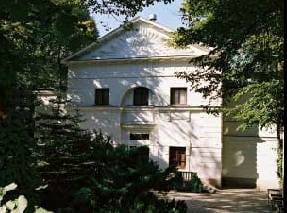 On March 12, 2012, the local authorities of the Mazovian Voivodship passed legislation significantly lowering the level of financial support to be given to the Warsaw Chamber Opera. This new funding level represents 23.55% of the funding agreed upon in previous resolution dated December 19, 2011. As a result, the WCO’s budget shortfall amounts to 1,195,577 PLN (ca. $350,000 USD) and all subsequent concerts and productions planned for the future, including a Mozart Festival, have been cancelled by the Board of Directors. A petition in support of the Opera can be signed at: www.petycje.pl.
On March 12, 2012, the local authorities of the Mazovian Voivodship passed legislation significantly lowering the level of financial support to be given to the Warsaw Chamber Opera. This new funding level represents 23.55% of the funding agreed upon in previous resolution dated December 19, 2011. As a result, the WCO’s budget shortfall amounts to 1,195,577 PLN (ca. $350,000 USD) and all subsequent concerts and productions planned for the future, including a Mozart Festival, have been cancelled by the Board of Directors. A petition in support of the Opera can be signed at: www.petycje.pl.
In an open letter addressed to the Marshall of the Mazovian Voivodship, Adam Struzik, and Bogdan Zdrojewski, the Minister of Culture and National Heritage, the Voivodship has been asked to restore the financial support to the Opera, stressing that the survival of this excellent institution with over half a century of worldwide renown is now in danger.
In a blog post dated March 27, 2012, the director of the Baltic Opera, Marek Weiss, wrote in support of the Warsaw Chamber Opera, commenting that “… almost all artistic institutions in Poland have faced cuts due to the financial crisis, necessary savings, and to restructuring of spending on culture. At the same time, Polish Prime Minister Donald Tusk announced that, for the first time in history, spending on culture will finally rise to the level of 1% of the national budget. I find this paradox difficult to understand…” In his blog Mr. Weiss also appealed to government bureaucrats, imploring them to distinguish between worthy projects and reputable institutions such as the Warsaw Chamber Opera, and other, less meritorious events that currently continue to receive funding.
[Source: polmic.pl, polmic.pl, operakameralna.pl]
New Website For Maria Szymanowska

Entitled “Maria Szymanowska (1789 – 1831), a Woman of Europe,” the new international project housed at www.maria-szymanowska.eu is intended to promote of the figure of Polish pianist and composer Maria Szymanowska. The project draws the attention of researchers, artists and a wide-ranging public to the emblematic character of Maria Szymanowska—one of the first female professional musicians in Europe—highlighting her modernity and her role in the history of the status of women. European before the creation of the term, Szymanowska was modern in her desire to override cultural, religious and geopolitical differences, in her search for personal and professional fulfillment, her constant preoccupation with effectiveness and development.
The project has been carried out by the Maria Szymanowska Society since 2011in collaboration with its private and institutional partners, and with generous support from the Polish Ministry of Culture and National Heritage.
[Source: maria-szymanowska.eu]
Stachowski Street In Kraków
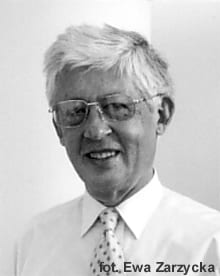 On March 21, the City Council of Kraków unanimously passed a decree to name one of the city’s streets after Marek Stachowski (1936-2004), one of the most prominent Polish composers and educators of his generation who was also associated for a number of years with the Kraków Music Academy. By a lucky coincidence, the vote was held on March 21, a day marking Stachowski’s 77th birthday anniversary.
On March 21, the City Council of Kraków unanimously passed a decree to name one of the city’s streets after Marek Stachowski (1936-2004), one of the most prominent Polish composers and educators of his generation who was also associated for a number of years with the Kraków Music Academy. By a lucky coincidence, the vote was held on March 21, a day marking Stachowski’s 77th birthday anniversary.
It has been decided that the new street will coincide with the future site of the new Kraków Philharmonic and the Music Academy buildings, which, after analyzing more than ten different locations within the city, will be housed in the vicinity of the Kurlandzki Boulevard in the Grzegórzki district. Thus, the two most important music institutions in Kraków will be located at the street address bearing the name of a cherished composer and former music professor, who has greatly influenced several generations of musicians and left an important imprint on the musical life of the city. Another serendipitous fact is that the Stachowski Street will be located in a district where he lived for the last 20 years of his life. Streets named after Stanisław Moniuszko, Henryk Wieniawski, and Artur Malawski are also located in the same part of town.
This initiative was supported by the Kraków Chapter of the Polish Stage Artists’ Union, Polish Society for Contemporary Music, Board of Directors of the Polish Music Publishers, and Mr. Łukasz Gibała, a deputy to the Polish Parliament.
[Source: press release via artyscipolscy.pl]
Dudziak Memoirs
 Urszula Dudziak, one of the most popular jazz singers in Poland, has written an autobiography of her fascinating life. Entitled Wyśpiewam Wam wszystko [I Sing to All], Dudziak’s candid look at her long life and career contains many fascinating details and little-known stories. She touchingly describes her first meeting with Polish jazz legend, Krzysztof Komeda, her long-time collaboration with Michał Urbaniak (who was also her former husband), and her interactions with the pantheon of jazz greats, including Miles Davis, Herbie Hancock, Chic Corea, Bobby McFerrin, Stan Getz, and Diana Ross, among other. The book, published by Kayax is also available in an audio version.
Urszula Dudziak, one of the most popular jazz singers in Poland, has written an autobiography of her fascinating life. Entitled Wyśpiewam Wam wszystko [I Sing to All], Dudziak’s candid look at her long life and career contains many fascinating details and little-known stories. She touchingly describes her first meeting with Polish jazz legend, Krzysztof Komeda, her long-time collaboration with Michał Urbaniak (who was also her former husband), and her interactions with the pantheon of jazz greats, including Miles Davis, Herbie Hancock, Chic Corea, Bobby McFerrin, Stan Getz, and Diana Ross, among other. The book, published by Kayax is also available in an audio version.
[Source: rmfclassic.pl]
Polish Mazurkas In Portland
 On April 14, the Polish Hall in Portland will present a Celebration of Mazurkas in the “Polish Music At Polish Hall – Classical Music Series.” Five regional pianists—Ruta Kuzmickas, Art Maddox, Kaori Katayama Noland, Lisa Ann Marsh and Sung Eun Roh—will perform mazurkas of three immortal Polish composers: Fryderyk Chopin, Karol Szymanowski, Roman Maciejewski.
On April 14, the Polish Hall in Portland will present a Celebration of Mazurkas in the “Polish Music At Polish Hall – Classical Music Series.” Five regional pianists—Ruta Kuzmickas, Art Maddox, Kaori Katayama Noland, Lisa Ann Marsh and Sung Eun Roh—will perform mazurkas of three immortal Polish composers: Fryderyk Chopin, Karol Szymanowski, Roman Maciejewski.
Ruta Kuzmickas is a young, talented, upcoming pianist to watch, whose prizes include the ‘World Piano Pedagogy Conference’, Jack Kent Cooke Young Artist Award and Chopin Foundation of the United States. A major talent in the Oregon music scene, Art Maddox has worked extensively with fellow Oregonians Ken Kesey and Mason Williams as performer and composer. He studied in Warsaw in the 1960s and is so inspired by Polish masters that, in addition to performing them, Art will compose and premiere an original mazurka for the concert.
Kaori Katayama Noland has performed piano and organ recitals in both Japan and the US and has been a participant in the Seventh Species and Cascadia Composers concert series. She has written on Schoenberg, Debussy, Chopin and others, and given presentations at the International Chopin Conference in Warsaw and the European Analysis Conference in Freiburg, Germany. Lisa Ann Marsh is a member of the adjunct piano faculty at Portland State University, Marylhurst University, and Portland Community College, and serves as Principle Keyboard with the Columbia Symphony Orchestra. Sung Eun Roh has participated in the First International Music Festival & Competition in Caprarola, Italy, has performed a piano concerto with the Romania Orchestra, has appeared on K.B.S (Korean Broadcasting System), and has given numerous solo and chamber recitals in Korea and U.S.
The Celebration of Mazurkas is the brainchild of Agnieszka Laska, who serves as Director of the Polish Music at Polish Hall series. This program follows the successful launch of the “Polish Music At Polish Hall – Classical Music Series,” the newest classical music series in Portland, by superb soprano Maria Knapik on January 6, 2012.
A mazurka [pl: mazurek] traditionally accompanies a Polish folk dance in triple meter accented on the second or third beat. The music is usually at a lively tempo, although there are slower, more lyrical mazurkas as well. A brief description of the mazurek tradition will be given during this festive soiree, and the Agnieszka Laska Dancers will demonstrate the traditional dance. Following the concert, Mazurek cakes—an Easter-time tradition, baked in local Polish kitchens—will be served with coffee and tea and fine Polish liqueurs will be available at Grandpas’ cafe on the lower level of Polish Hall.
Saturday, April 14th, 2012 | 7:00 pm
Celebration of Mazurkas
Polish Hall: 3832 N Interstate Ave., Portland, OR 97227
Tickets at the door or online www.brownpapertickets.com
[Source: press release]
New Polish Music In Greece
Flautist Iwona Glinka and pianist Maria Aloupi will present a recital of music by Polish composers of the twentieth and twenty-first centuries on Saturday, April 28 and Monday, April 30 at About in Athens Greece. Works of Krzysztof Penderecki, Witold Lutosławski, Henryk Mikołaj Górecki, Philip Czaplowski, Piotr Grella-Mozejko, Alexandre Tansman and Karol Szymanowski will be featured on the program.
According to Anargyros Deniosos of www.about-art.gr:
Despite its turbulent history, Poland has an uninterrupted presence in the Western scholarly domain. Ever since the 18th (Polonaise) and 19th centuries, with the emergence of the National scholls, the arrival of Modernism in the Interwar period, the Postwar Polish School (of the clusters and Atonalality) up to the present time, Polish composers have won fame and acknowledgement that exceed and go far beyond the borders of their homeland. They are international personalities who, in difficult times, chose the path less travelled beyond the compromise of established aesthetics and other idealistic imeratives, and who regardless of the existing adversities, offered an ouevre which in its particularity and individuality and in contrast to all sorts of populism, succeeds in expressing panhuman messages.
The flute, being perhaps the organ closest to the human breath, is for many composers the ideal vehicle for the realization of their aesthetic vision. Its technical flexibility and the“objective” character of its timbres, especially because it does not emphatically impose its particular features, allow the composers to realize and express their own musical language. The instrument’s Polish repertoire is extensive and truly remarkable since most of the internationally acclaimed composers have contributed to it.
In tonight’s concert, the flutist Iwona Glinka and the pianist Maria Aloupi, offer a representative panorama of chamber music for flute, piano and for flute and piano from the 20th to the 21st century, a small sample of the richness and dynamism of the Polish music art.
 Beata Iwona Glinka was born in Kwidzyn, Poland. At the age of 18 she graduated from the Music Lyceum in Gdańsk with a Flute Diploma (Highest Distinction) and parallel specialization on teaching (class of Elżbieta Czapor). She continued her studies at the Music Academy of Gdańsk (class of Krzysztof Langman), graduating in 1994 with a Master of Music in Performance. She holds a D.M.A. in Flute Performance from the Academy of Music in Kraków, and in May 2009, she obtained a D.M.A. from the same institution (class of Barbara Świątek- Żelazny) for her dissertation on and a recital of Brian Ferneyhough’s complete flute music. As a Ph.D. candidate at the University of Athens (Department of Musical Studies), she currently focuses on contemporary Greek music for solo flute.
Beata Iwona Glinka was born in Kwidzyn, Poland. At the age of 18 she graduated from the Music Lyceum in Gdańsk with a Flute Diploma (Highest Distinction) and parallel specialization on teaching (class of Elżbieta Czapor). She continued her studies at the Music Academy of Gdańsk (class of Krzysztof Langman), graduating in 1994 with a Master of Music in Performance. She holds a D.M.A. in Flute Performance from the Academy of Music in Kraków, and in May 2009, she obtained a D.M.A. from the same institution (class of Barbara Świątek- Żelazny) for her dissertation on and a recital of Brian Ferneyhough’s complete flute music. As a Ph.D. candidate at the University of Athens (Department of Musical Studies), she currently focuses on contemporary Greek music for solo flute.
She has given dozens of solo recitals with classical and contemporary repertoire and has appeared as Principal Flautist with orchestras and chamber ensembles in Greece as well as Russia, Italy, Switzerland, Poland, and the US. She has developed a great interest in new music, which since 1994 has resulted in over ninety world premières of works by Greek, Polish and US composers, more than fifty of them commissioned by and written especially for her.
Since 1995, Dr. Glinka has been based in Athens, where she teaches flute and chamber music at the Municipal Conservatories of Patras and Glyfada and at the Conservatory “Musical Horizons” in Athens. She is Principal Flautist of the Athens Symphony Orchestra and a core member of the Hellenic Contemporary Music Ensemble of Theodore Antoniou. She has recorded extensively and appears on a dozen CDs available on the European and US labels such as BMG, Irida, Magni, Mercury, and others.
Saturday, April 28 & Sunday, April 30 | 8:30pm
20th & 21st century Polish music for flute and piano – Iwona Glina/Maria Aloupi
About: Art/ Music/ Poetry/ Books
Miaouli 18 / Psiri, 10554 Athens, Greece
Admission: 8 euros
[Sources: facebook.com, about-art.gr]
Gatonska Performed In Chicago
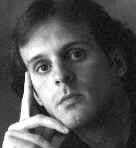 On Wednesday, April 11, the Chicago Chamber Musicians will perform Polish-American composer Michael Gatonska‘s 22 minute work for clarinet, violin, viola, violoncello and piano entitled The Moon of Falling Leaves (Arborial Night Music I). The program is part of the ‘Composer Perspectives’ series, and the April 12 program will feature the works of Aaron Jay Kernis: Trio in Red for clarinet, cello and piano and Two Movements (with Bells) for violin and piano. Also on the program is Lisa Bielawa’s Graffiti dell’Amante.
On Wednesday, April 11, the Chicago Chamber Musicians will perform Polish-American composer Michael Gatonska‘s 22 minute work for clarinet, violin, viola, violoncello and piano entitled The Moon of Falling Leaves (Arborial Night Music I). The program is part of the ‘Composer Perspectives’ series, and the April 12 program will feature the works of Aaron Jay Kernis: Trio in Red for clarinet, cello and piano and Two Movements (with Bells) for violin and piano. Also on the program is Lisa Bielawa’s Graffiti dell’Amante.
The Chicago Chamber Musicians performing on this concert are: Joseph Genualdi and Jasmine Lin, violin; Rami Solomonow, viola; Clancy Newman, cello; and Meng-Chieh Liu, piano. They will be joined by guest artists: Lisa Bielawa, soprano; Igor Begelman, clarinet; Wagner Campos, clarinet and bass clarinet; Kay Kim, piano; and Michael Lewanski, conductor
Wednesday, April 11, 2012 | 6:45 p.m. – discussion | 7:30 p.m. – concert
Composer Perspectives with Aaron Jay Kernis
Ganz Hall, Roosevelt University, Chicago
Tickets: $25 General Admission, $10 Students
[Source: press release]
The Pianist Of Willesden Lane
From April 17 – May 27, author and pianist Mona Golabek (pictured below) performs as Lisa Jura in The Pianist of Willesden Lane at the Audrey Skirball Kenis Theater. Adapted and directed by Hershey Felder, the play is based on the book The Children of Willesden Lane by Mona Golabek & Lee Cohen.
 Set in Vienna in 1938 and London during the Blitzkrieg, The Pianist of Willesden Lane tells the story of Lisa Jura, a young Jewish pianist who is dreaming about her concert debut at the storied Musikverein concert hall. But with the issuing of new ordinances under the Nazi regime, everything for Lisa changes, except for her love of music and the pursuit of her dream. Featuring some of the world’s most beloved piano music played live, The Pianist of Willesden Lane is performer Mona Golabek’s true family story, chronicling hope, survival and how through our darkest times, music has the power to help us survive.
Set in Vienna in 1938 and London during the Blitzkrieg, The Pianist of Willesden Lane tells the story of Lisa Jura, a young Jewish pianist who is dreaming about her concert debut at the storied Musikverein concert hall. But with the issuing of new ordinances under the Nazi regime, everything for Lisa changes, except for her love of music and the pursuit of her dream. Featuring some of the world’s most beloved piano music played live, The Pianist of Willesden Lane is performer Mona Golabek’s true family story, chronicling hope, survival and how through our darkest times, music has the power to help us survive.
April 17 – May 27, 2012
The Pianist of Willesden Lane
Audrey Skirball Kenis Theater at the Geffen Playhouse
10886 Le Conte Ave, Los Angeles, CA
Tickets: geffenplayhouse.com – for a10% discount, use promo code “NEWSLETTER”
[Sources: press release, geffenplayhouse.com]
Awards
Kwieciński Nominated For Gaudeamus Prize
 The International Jury of the 2012 Gaudeamus Prize in The Netherlands selected Umbrae B for string orchestra by Andrzej Kwieciński (Poland/The Netherlands) as one of the thirteen new compositions that will be performed during the Gaudeamus Muziekweek in Utrecht from September 2-9, 2012. The jurors, including Martijn Padding (Holland), Annie Gosfield (USA), and Christopher Butterfield (Canada) will pick a winning composition at the end of the Festival.
The International Jury of the 2012 Gaudeamus Prize in The Netherlands selected Umbrae B for string orchestra by Andrzej Kwieciński (Poland/The Netherlands) as one of the thirteen new compositions that will be performed during the Gaudeamus Muziekweek in Utrecht from September 2-9, 2012. The jurors, including Martijn Padding (Holland), Annie Gosfield (USA), and Christopher Butterfield (Canada) will pick a winning composition at the end of the Festival.
Almost 300 works by composers from all over the world were submitted to this year’s competition. The prize in the amount of 4,550 Euros will go towards commissioning of a new work from the winning composer and a performance at the 2013 edition of the Festival.
The full list of the 13 finalists selected is available at muziekweek.nl.
[Source: polmic.pl, muziekweek.nl]
‘Splendor Gedanensis’ 2012
Composer Elżbieta Sikora, conductor Kai Bumann and jazzman Olo Walicki were honored with the City of Gdańsk Culture Award “Splendor Gedanensis” for the year 2011. In recognition of “outstanding achievements in the field of artistic creation and dissemination of culture,” the awards were presented on March 9, 2012 during a gala ceremony in the Riviera Theatre in Gdańsk.
Elżbieta Sikora was recognized for the creation of the opera about the life of Madame Curie, Maria Sklodowska-Curie, which was staged by the Baltic Opera’s Mark Weiss for premiere at the UNESCO Auditorium in Paris on November 15, 2011. Baltic Philharmonic Artistic Director Kai Bumann has been recognized for organizing the series “Poetry for Ołowianka” and “Year of Miłosz.” Jazz bassist and composer Olo Walicki was recognized for, amongst other achievements, his recordings of his music for film and theater.
2011 marks the twenty-ninth time that the City of Gdańsk “Splendor Gedanensis” has been awarded in the field of culture. Among previous winners are: Marian Kołodziej, Hugh Lasecki, Paul Huelle, Stefan Chwin, Leszek Możdżer, Maria Janion, Janina Jarzynówna-Sobczak, Dorota Kolak and Stanisław Fleszerowa-Muskat. In addition to a diploma and statuette, winners of the 2012 Splendor Gedanensis received zł.10,000 PLN.
[Source: polmic.pl]
Penderecki Honored By Viadrina University
 Krzysztof Penderecki’s contributions to the improvement of Polish-German relations through the field of music were recognized with a 2,500 Euro prize given to the composer by the Viadrina University in Frankfurt (Oder), a town on the Polish-German border. Cited by the University for “opening the ears of the German nation to contemporary music,” the composer confirmed that he will attend the May 7 award ceremony. Previous prizewinners included Karl Dedecius for German translations of Polish poetry, Guenther Grass for literary achievements, and the first post-communist premier of Poland, Tadeusz Mazowiecki.
Krzysztof Penderecki’s contributions to the improvement of Polish-German relations through the field of music were recognized with a 2,500 Euro prize given to the composer by the Viadrina University in Frankfurt (Oder), a town on the Polish-German border. Cited by the University for “opening the ears of the German nation to contemporary music,” the composer confirmed that he will attend the May 7 award ceremony. Previous prizewinners included Karl Dedecius for German translations of Polish poetry, Guenther Grass for literary achievements, and the first post-communist premier of Poland, Tadeusz Mazowiecki.
The University was reactivated in 1991 after almost two centuries of closure. Its location on the other side of the river which divides Poland and Germany makes the Viadrina University quite popular with Polish students, who constitute well over 10% of overall enrollment.
[Source: rmfclassic.pl]
Honors For Fialkowska
Governor General’s Performing Arts Award
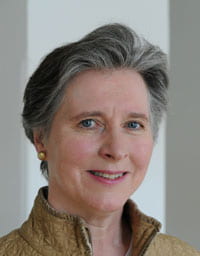 On Tuesday March 6, it was announced that Polish-Canadian pianist Janina Fialkowska is the recipient of the “2012 Governor General’s Performing Arts Award” for Lifetime Artistic Achievement in Classical Music. The Governor General’s Performing Arts Awards are Canada’s most prestigious honor in the performing arts, equivalent to the “Kennedy Center Awards” in the United States.
On Tuesday March 6, it was announced that Polish-Canadian pianist Janina Fialkowska is the recipient of the “2012 Governor General’s Performing Arts Award” for Lifetime Artistic Achievement in Classical Music. The Governor General’s Performing Arts Awards are Canada’s most prestigious honor in the performing arts, equivalent to the “Kennedy Center Awards” in the United States.
Each year the Awards are presented for Lifetime Artistic Achievement in the categories of theatre, dance, classical music, popular music, film, and broadcasting. Nominated by the public, these awards recognize artists who have made an indelible contribution to Canada’s cultural life.
The awards recognize a stellar array of artists for their outstanding lifetime contribution. Former recipients in the category of classical music include such prominent singers as Jon Vickers, Teresa Stratas and Maureen Forrester. In the history of the awards, Fialkowska is the second classical music instrumentalist (and the first woman in this category) to receive the Award for Lifetime Artistic Achievement.
The three-day celebration in Ottawa (May 3-5) includes an official presentation at the House of Commons on Parliament Hill, the award ceremony at Rideau Hall (the seat of Canada’s Governor General), a gala tribute performance at the National Arts Centre where a short film about Janina, produced by the National Film Board of Canada, will also be shown.
Because of the scheduling of this unique honor, Fialkowska’s recital and BBC live-broadcast at Wigmore Hall in London has been postponed until April 8th, 2013.
Queen’s University – Honorary Doctorate No. 2
In a moving ceremony filled with emotion as well as pomp and circumstance, Fialkowska received an honorary doctorate from Queen’s University in Kingston, Ontario on November 14, 2011. Chancellor David Dodge, former Governor of the Bank of Canada, bestowed upon her the title of “Doctor of Laws” and she was hooded by her illustrious pianist colleague and friend, Dr. Ireneus Zuk. Principal Daniel Woolf gave the laudatory speech extolling Fialkowska’s achievements both personal and professional.
The night before, she performed an enthusiastically received all-Chopin benefit recital for the Queen’s University School of Music.
[Sources: polmic.pl, fialkowska.com, queensu.ca]
Sembrich Competition 2012 Winners
The Kosciuszko Foundation’s annual Sembrich Voice Scholarship Competition took place on Friday, March 9, 2012. Auditions were held at the Kosciuszko Foundation House in New York City. The 2012 winners are:
- 1st prize ($3000) – Viktor Antipienko
- 2nd prize ($1500) – Julie-Ann Hamula
- 3rd prize ($1000) – Marta Wryk & Emily Newton ex-aequo
The Sembrich Competition honors the great Polish soprano Marcella Kochańska-Sembrich, who made her Metropolitan Opera debut in its brand-new building in 1883. After an enormously successful career, the popular singer helped found the vocal programs at both the Juilliard School and Curtis Institute. Previous winners of the competition include Barbara Hendricks and Jan Opalach.
[Sources: thekf.org, martawryk.com, viktorantipenko.com, emilynewton.net]
Festivals
Unsound Festival New York
UNSOUND Festival New York (April 18 – April 22) continues into its third season in 2012, cementing its place in New York’s cultural calendar with a program of forward-thinking music, discussion panels, screenings and talks spread across Manhattan and Brooklyn. By embracing a broad range of genres from contemporary classical music to post-industrial sounds to black metal to new directions in bass-driven club music, UNSOUND Festival uniquely explores the current music scene’s cutting edge. UNSOUND is presented by Fundacja Tone, the Polish Cultural Institute New York and Goethe-Institut New York.
The festival is the product of a unique collaboration between the organizers of Kraków’s UNSOUND Festival – now in its tenth year – with New York curators, cultural institutes, and venues.
Artists featured in the New York edition include a strong focus on Central and Eastern Europe, plus a selection of artists from the Nordic region. These artists will not only perform solo, but in a series of exciting live collaborations and improvisations under the banner UNSOUND LABS music program. UNSOUND LABS discussion program will include talks, presentations, and screenings. These are presented with the UK’s The Wire Magazine.
Polish artists will include Jacaszek, promoting the release of his album Glimmer on the US label, Ghostly International, and sharing a bill with LA dark ambient overlord Lustmord and Norwegian electronic music pioneer Biosphere. Electronic jazz group Baaba will perform a genre-bending live score to a selection of Polish classic animated films. LXMP will use percussion and vintage synths like the Korg MS20 to reinterpret Herbie Hancock’s “Future Shock.” Napszyklat will perform their mix of experimental sounds, noise and hip hop with lyrics in Polish. Krakow based DJ Eltron John (Marek Stuczynski) will perform sets containing Funk and Disco, as well as skillfully blended House music. For the UNSOUND LABS music program, percussionist Tomek Choloniewski will collaborate with experimental electronic artist Denis Kolokol and trumpet star Nate Wooley; on the same bill Bartosz Weber from Baaba will perform with Mark McGuire from Emeralds. Other standouts numbered on this thickly impressive program include LA composer Julia Holter, dub-inspired Sun Araw, and German electronic music titan Monolake.
See the full Festival program at polishculture-nyc.org or unsound.pl.
[Sources: polishculture-nyc.org, residentadvisor.net]
Performances
Penderecki & Greenwood
 An iconic figure in the struggle for freedom behind the Iron Curtain from the 1960s until the fall of the Wall and a leading composer in the international landscape of avant-garde classical music, Krzysztof Penderecki made his first Barbican appearance in over 12 years for an outstanding collaboration featuring music by Radiohead guitarist and radical innovator Jonny Greenwood on March 22. Accompanied by a striking contemporary video and lighting design, this concert celebrated the strong influence Penderecki’s music has had on Greenwood’s compositional career. The concert was performed by the AUKSO Chamber Orchestra of the City of Tychy, with Krzysztof Penderecki conducting his works and Marek Moś conducting those by Greenwood.
An iconic figure in the struggle for freedom behind the Iron Curtain from the 1960s until the fall of the Wall and a leading composer in the international landscape of avant-garde classical music, Krzysztof Penderecki made his first Barbican appearance in over 12 years for an outstanding collaboration featuring music by Radiohead guitarist and radical innovator Jonny Greenwood on March 22. Accompanied by a striking contemporary video and lighting design, this concert celebrated the strong influence Penderecki’s music has had on Greenwood’s compositional career. The concert was performed by the AUKSO Chamber Orchestra of the City of Tychy, with Krzysztof Penderecki conducting his works and Marek Moś conducting those by Greenwood.
 The program featured two pieces from the Polish master’s avant-garde period—Polymorphia and Threnody to the Victims of Hiroshima—which inspired Greenwood to write the other two pieces performed on the program: Popcorn Superhet Receiver and 48 Responses to Polymorphia. 48 Responses to Polymorphia is a new piece that was premiered by the AUKSO Orchestra under Marek Moś during the European Culture Congress in Wrocław on 9 September.
The program featured two pieces from the Polish master’s avant-garde period—Polymorphia and Threnody to the Victims of Hiroshima—which inspired Greenwood to write the other two pieces performed on the program: Popcorn Superhet Receiver and 48 Responses to Polymorphia. 48 Responses to Polymorphia is a new piece that was premiered by the AUKSO Orchestra under Marek Moś during the European Culture Congress in Wrocław on 9 September.
The compositions by Krzysztof Penderecki and Jonny Greenwood performed during the concert have been recorded and an album will be released on Nonesuch Records on March 13—see www.beethoven.org.pl for details.
Read a review of the concert by Andrew Clark of the Financial Times at: www.ft.com.
This concert was produced by the Barbican in association with the Polish Cultural Institute in London, the National Audiovisual Institute in Warsaw and Event-factory s.c. and sponsored by DFDS Seaway, as part of 10th Kinoteka Polish Film Festival.
[Sources: polmic.pl, polishculture.org.uk]
Camarata New York & Musiał At KF
The Camerata New York ensemble presented a concert performance of eclectic selections on March 18, 2012 at the Kosciuszko Foundation under its musical director and co-founder, maestro Richard Owen. The concert program featured Three Pieces in Baroque Style by Krzysztof Penderecki, the Overture to La Bella Figulola by Niccolo Piccini, Pavane by Gabriel Fauré, and Symphony No. 5 by Franz Schubert. In addition, Camerata New York was joined by Polish pianist Katarzyna Musiał who performed Henryk Mikołaj Górecki’s Concerto for Piano and Strings.
According to Richard Owen, “I can’t think of a better way to celebrate Camerata New York’s 10th anniversary than with a return performance at the Kosciuszko Foundation. We are particularly excited to be playing with Katarzyna Musiał, one of the finest pianists I have had the pleasure of hearing.”
Magdalena Mazurek-Nuovo, Director of Cultural Events at the Kosciuszko Foundation noted for the record, “The Kosciusko Foundation is extremely pleased to welcome back Camerata New York, one of New York’s most distinguished chamber ensembles. Camerata New York always manages to stage outstanding performances that feature the best works of legendary and lesser-known composers, while showcasing the musicianship of young talented performers.”
Camarata New York has appeared and performed at Carnegie Hall, the Cathedral of St. John Divine, St. Paul’s Chapel, Merkin Hall, and Lincoln Center amongst others. Critics have hailed accolades on Camerata New York noting its “lustrous tone quality” and “near-definitive” performances. The chamber ensemble orchestra has been featured on WQXR and WMNR and has made favorable headlines in such publications as Opera News and The New York Times. Camarata New York has collaborated with many diverse artists and performers including dancers from Alvin Ailey, cellist Nathanial Rosen, soprano April Mille, and film star Alec Baldwin. Notable supporters include the Florence Gould Foundation, the Greenfield Foundation and Bagby Foundation. This season, Camerata New York has a very busy schedule with concerts at the Kosciuszko Foundation, the Katonah Library, Mead Chapel and Austrian Consulate.
 Accomplished Polish-Canadian pianist Katarzyna Musiał has performed as a soloist and chamber musician throughout North America and Europe. The New York Concert Review described her playing as “a pure delight…wonderfully evocative…vividly detailed…interpretation that plumbed emotional depths with harmonic coloring.” Musiał won first prize at the 2011 Bradshaw and Buono International Piano Competition in New York. She has been a featured artist on radio broadcasts in Canada and the United States and has made television appearances on POLTV in Vancouver, CJNT in Montreal, OMNI Television in Toronto and TV-Polsat. Musiał holds a master degree with high honors from the Academy of Music in Kraków, as well as an artist diploma from the Vancouver Academy of Music and a diploma in advanced music performance studies from Concordia University in Montreal.
Accomplished Polish-Canadian pianist Katarzyna Musiał has performed as a soloist and chamber musician throughout North America and Europe. The New York Concert Review described her playing as “a pure delight…wonderfully evocative…vividly detailed…interpretation that plumbed emotional depths with harmonic coloring.” Musiał won first prize at the 2011 Bradshaw and Buono International Piano Competition in New York. She has been a featured artist on radio broadcasts in Canada and the United States and has made television appearances on POLTV in Vancouver, CJNT in Montreal, OMNI Television in Toronto and TV-Polsat. Musiał holds a master degree with high honors from the Academy of Music in Kraków, as well as an artist diploma from the Vancouver Academy of Music and a diploma in advanced music performance studies from Concordia University in Montreal.
[Source: press release]
‘Tu Szymanowski!’
 The Warsaw University Library and the Szymanowski Music Society hosted a recital honoring Karol Szymanowski’s 75th death anniversary on 29 March at the Ballroom of the Tyszkiewicz Palace on Krakowskie Przedmieście in Warsaw. Pianist Piotr Banasik (pictured at right), faculty member of the Katowice Music Academy, presented a program that included Szymanowski’s famous Etude in B-flat minor, Op. 4 no. 3 as well as the Second Sonatina and Children’s Suite by Tadeusz Baird. Piotr Banasik also featured works by Xawery Scharwenka on his program. The Director of Collections at the Warsaw University Library, Piotr Maculewicz, provided introductory remarks before the concert. The Library’s Archive Collection of Polish Composers of the 20th Century has many manuscripts of Szymanowski and almost all manuscripts of Baird’s works.
The Warsaw University Library and the Szymanowski Music Society hosted a recital honoring Karol Szymanowski’s 75th death anniversary on 29 March at the Ballroom of the Tyszkiewicz Palace on Krakowskie Przedmieście in Warsaw. Pianist Piotr Banasik (pictured at right), faculty member of the Katowice Music Academy, presented a program that included Szymanowski’s famous Etude in B-flat minor, Op. 4 no. 3 as well as the Second Sonatina and Children’s Suite by Tadeusz Baird. Piotr Banasik also featured works by Xawery Scharwenka on his program. The Director of Collections at the Warsaw University Library, Piotr Maculewicz, provided introductory remarks before the concert. The Library’s Archive Collection of Polish Composers of the 20th Century has many manuscripts of Szymanowski and almost all manuscripts of Baird’s works.
[Source: polmic.pl]
Discography
Debut Album From Meadow Qtet
 Meadow Quartet – Unexpected
Meadow Quartet – Unexpected
Das Schloss, Goldene Medina, Nature’s Tool, Le Printemps, L’automne, Immersion, Form No. 1, Extinct
Meadow Quartet: Marcin Malinowski – clarinet; Michał Piwowarczyk – viola; Piotr Skowroński – accordion; Jarosław Stokowski – bass
The Meadow Quartet was founded in 2009 in Gdańsk, where the group’s first rehearsals took place in the meadow outside of the Academy of Music building. A meadow [łąka] is a space that is both synonymous with peace and joy and is also an area of ongoing change, transformation and interaction. In this context, the Meadow Quartet attempts to create a space for conflicting influences: contemporary chamber music, jazz, improvised music, film music and their fundamental bond – traditional Jewish music. In this way, the group is forging a path that defies simple stylistic categorization.
[Sources: tvp.pl, meadowquartet.com]
New On DUX
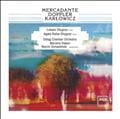 Mercadante | Doppler | Karłowicz
Mercadante | Doppler | Karłowicz
Mieczysław Karłowicz – Serenade, op. 2; Albert Franz Doppler, Giuseppe Saverio Mercadante – Concerto in E minor for flute and orchestra
Łukasz Długosz – flute, Elbląg chamber orchestra – cond. Marcin Sompoliński, Elbląg chamber orchestra – cond. Marzena Diakun
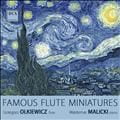 Famous Flute Miniatures
Famous Flute Miniatures
Krzysztof Penderecki – Misterioso; Stanisław Moniuszko – The Spinning Girl (arr. Wilhelm Popp); Fryderyk Chopin – Variations in E major on the theme “Non piu mesta” from Rossini’s La Cenerentola; plus works by Albert Roussel, Christoph Willibald Gluck, Claude Debussy, Gabriel Fauré, Lobos Heitor Villa, and Maurice Ravel
Waldemar Malicki, Grzegorz Olkiewicz
DUX 0829
Anniversaries
Born This Month
-
1 April 1872 – Tadeusz JOTEYKO, composer (d. 20 August 1932)
-
3 April 1904 – Maria WILKOMIRSKA, pianist professor of piano in Lodz and Warsaw
-
4 April 1941 – Aleksander GLINKOWSKI, composer active in Katowice (d. 1991)
-
8 April 1890 – Zbigniew DRZEWIECKI, pianist and professor of piano, organizer of Chopin Competitions, president of Chopin Society
-
9 April 1880 – Stanislaw LIPSKI, pianist and composer (d. 6 October 1937)
-
9 April 1951 – Andrzej KRZANOWSKI, composer (d. 1990)
-
13 April 1890 – Ludwik BRONARSKI, musicologist (d. 1975)
-
18 April 1903 – Tadeusz KWIECINSKI, composer (d. 11 July 1960)
-
21 April 1907 – Antoni SZALOWSKI, composer (d. 21 March 1973)
-
29 April 1880 – Adolf CHYBIŃSKI, musicologist, professor of universities in Lwów and Pozńan (d. 31 October 1952)
Died This Month
-
5 April 1935 – Emil MŁYNARSKI, conductor, violinist, composer, music director of the Warsaw Opera, (b. 18 August 1870)
-
6 April 2006 – Augustyn BLOCH, composer and organist, vice-President of ZKP [Polish Composesrs’ Union] from 1983-1987 (b. 13 August 1929)
-
9 April 1944 – Boleslaw WALLEK-WALEWSKI, conductor and composer, active in Krakow, Warsaw and Pozńan (b. 23 January 1885)
-
11 April 1938 – Bronislawa WÓJCIK-KEUPRULIAN, musicologist, professor of Lwów University, specialist in Chopin and Armenian music (b. 6 August 1890)
-
12 April 1956 – Tadeusz STRUMIŁŁO, musicologist, professor of Jagiellonian University, with Z. Szweykowski discovered over 200 compositions of 18th, 19th c. (b. 10 July 1929)
-
13 April 2007 – Andrzej KURYLEWICZ, composer and conductor, best known for jazz but also wrote classical works and music for film, TV, and theather (b. 24 Nov 1932)
-
15 April 1945 – Feliks WRÓBEL, composer and music theorist (b. 15 May 1894)
-
18 April 1854 – Józef ELSNER, composer, founder of Warsaw Conservatory, teacher of Chopin (b. 1 June 1769)
-
18 April 2006 – Maria DZIEWULSKA, composer, music theoretician and dedicated educator (b. 1 June 1909)
-
24 April 1845 – Anna WOLKOW-STANIUKIEWICZ, soprano, singer of Warsaw Opera (b. 26 August 1808)
-
25 April 1951 – Jerzy FITELBERG, composer, son of conductor Grzegorz, since 1933 lived in Paris, 1940 in New York (b. 20 May 1903)
-
28 April 1928 – Henryk MELCER-SZCZAWINSKI, pianist, teacher, conductor, professor and chair of the Warsaw Conservatory of Music (b. 21 September 1869)
-
30 April 1998 – Roman MACIEJEWSKI, composer, pianist (b. 28 February 1910)



